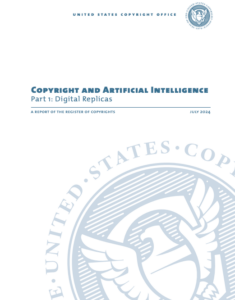In a diplomatic move aimed at fostering international collaboration and addressing the multifaceted challenges arising from Artificial Intelligence (AI), the United Kingdom has reached out to China with an invitation to participate in its upcoming global AI summit. This decision to include China, renowned as one of the world’s AI pioneers, underscores the UK’s dedication to facilitating comprehensive discussions on AI technology and its associated risks.
This development comes at a crucial juncture when the UK is keen on establishing itself as a global leader in AI regulation. The summit, scheduled for November 1-2, is poised to bring together representatives from governments, prominent tech corporations, and academia to deliberate on the profound implications of AI technology across various domains.
Foreign Minister James Cleverly has emphasized the importance of involving China in the AI summit. He has underscored that ensuring the safety of the UK’s populace in the face of potential AI-related risks remains a top priority. Cleverly’s stance reflects the UK’s commitment to inclusive international cooperation in addressing the multifaceted challenges presented by AI.
A comprehensive AI agenda
The summit’s agenda is poised to cover a wide spectrum of AI-related topics. Among these is a critical examination of the potential ramifications of AI on biosecurity, an issue that has garnered increasing attention in a world characterized by heightened interconnectivity. Additionally, attendees will engage in discussions about the diverse ways AI can be harnessed for the greater benefit of the public, including enhancing the safety of transportation systems.
UK’s pragmatic engagement with China
James Cleverly, who embarked on a landmark visit to China just last month, has vocally advocated for deeper engagement with Beijing. He maintains that isolating the world’s second-largest economy would be unwise. Instead, he advocates for safeguarding the UK’s institutions and infrastructure while collaborating with global partners to address shared challenges. Notably, Cleverly highlights the indispensability of Chinese cooperation in dealing with critical global issues, such as climate change and economic stability.
While the UK endeavors to cultivate stronger diplomatic ties with China, recent developments have raised concerns and tensions. The apprehension stems from occurrences such as the arrest of a parliamentary researcher in March on suspicions of espionage for China. These concerns underscore the delicate balancing act the UK must execute as it seeks to engage with China while upholding its national interests.
Diverging approaches to AI regulation
In a departure from the European Union’s far-reaching AI Act, UK government officials are contemplating a more measured approach to AI regulation. The EU’s legislation imposes stringent requirements on entities employing AI systems categorized as “high risk,” encompassing rigorous risk assessments and enhanced data transparency. In contrast, the UK is exploring a less stringent regulatory framework for AI, aiming to strike a balance fostering innovation and growth while mitigating the potential pitfalls of AI technology.
Pioneering global AI conversations
To spearhead preparations for the summit, the UK has appointed Matt Clifford, a seasoned tech expert, and Jonathan Black, a former senior diplomat. Their mandate is to establish a precedent that will set the tone for future international dialogues on AI regulation. The UK envisions a nuanced approach that encourages innovation and development and safeguards against the potential hazards that AI technology may pose.
The UK’s invitation to China for its global AI summit signifies a significant stride toward international cooperation in tackling AI technology’s multifaceted challenges and opportunities. While concerns and diplomatic tensions persist, the UK is committed to engaging with China in a pragmatic manner, acknowledging the necessity of collaborative efforts to address global issues. The comprehensive agenda of the upcoming summit, spanning topics from biosecurity to the public good applications of AI, mirrors the intricate nature of the AI discourse. As the November summit draws near, the world will closely observe how the UK’s approach to AI regulation may shape forthcoming global conversations in this pivotal arena.





